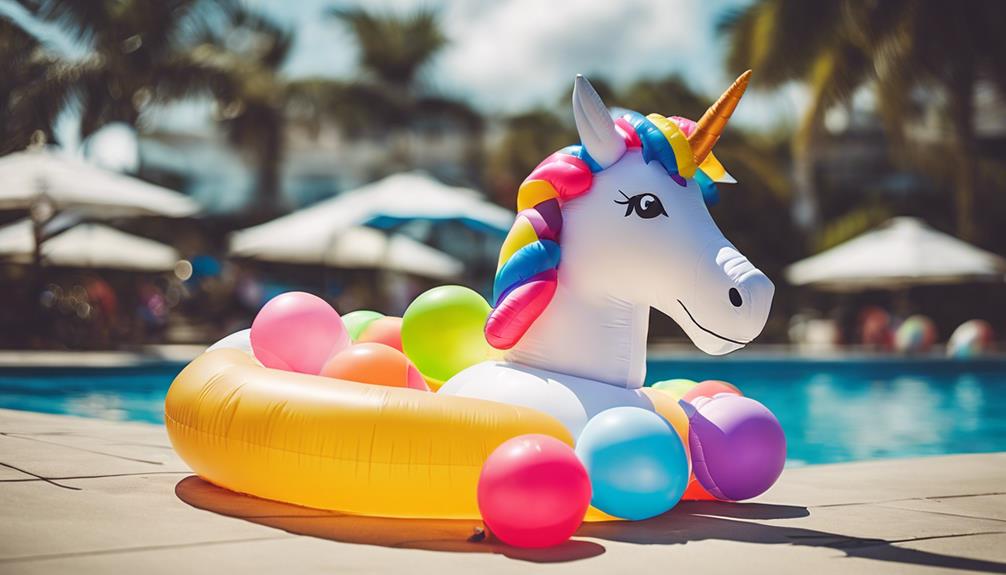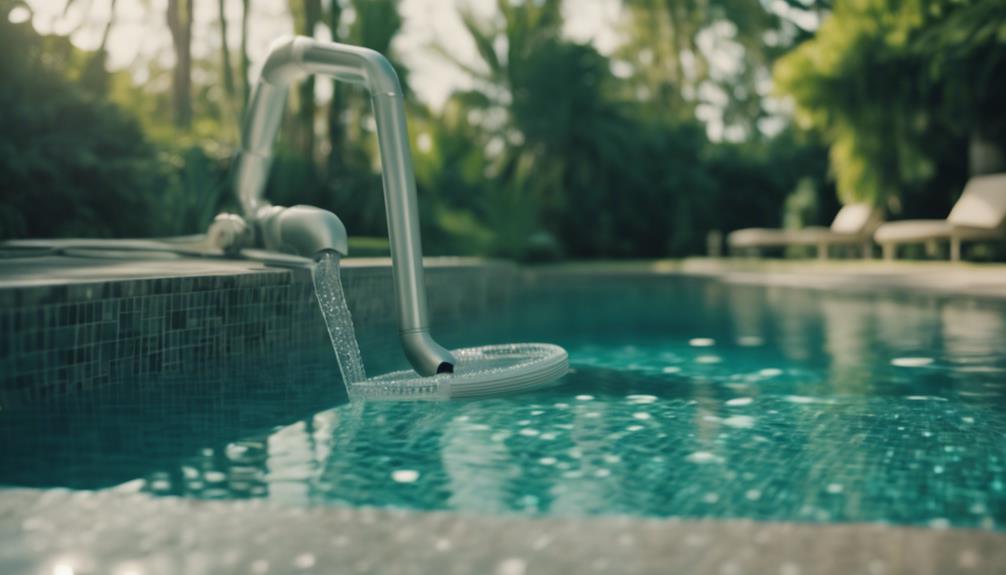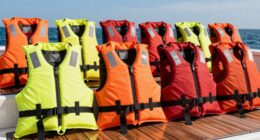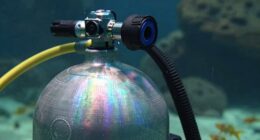Maximize your child's safety at the pool with these essential tips: Enroll them in swim lessons to teach valuable water skills early on. Dress them in life vests for added protection, especially if they're beginner swimmers. Impose strict safety rules, such as constant adult supervision and a 'no diving' policy. Install a secure pool fence at the correct height and with self-closing gates. Finally, prioritize pool cleanliness to prevent waterborne illnesses. Each tip plays an important role in safeguarding your child while they enjoy pool time.
Key Takeaways
- Enforce strict life vest policy for novice swimmers.
- Implement designated adult supervision at all times.
- Educate swimmers on water safety and hygiene practices.
- Follow essential pool fence guidelines for added safety.
- Regularly test and maintain pool sanitization levels.
Swim Lessons for Early Water Safety
Swim lessons for early water safety are recommended as children as young as 12 months can begin their journey to learn essential water safety skills. These lessons not only introduce basic swimming techniques but also educate children on important aspects such as floating, understanding currents, and proper breathing techniques in water.
Whether opting for group sessions or private instructors, the exposure to water at a young age can help prevent the development of a fear of swimming later in life. However, it is essential that children are always supervised by a professional instructor during these lessons to guarantee their safety and proper skill development.
Starting early with swim lessons can lay a solid foundation for a child's water safety knowledge and skills.
Importance of Life Vests for Kids
Life vests are vital safety gear for children in and around pools. Novice swimmers, especially young children, should always wear life vests when in the pool. These vests play an important role in keeping swimmers' heads above water, providing an added layer of protection against accidental submersion.
It is important to enforce a strict life vest policy for all children to guarantee their safety while enjoying pool activities. Compared to inflatable toys, life jackets offer superior safety and security. However, it is crucial to remember that continuous supervision is still necessary, even if a child is wearing a life vest.
Implementing Pool Safety Rules

To secure a pool environment, establishing and enforcing clear pool safety rules is crucial for minimizing the risk of accidents and promoting responsible water behavior among swimmers. When implementing pool safety rules, consider the following:
- Designated Adult Supervision:
- Always have a responsible adult present to supervise swimmers.
- Make sure the designated adult is focused solely on monitoring the pool area.
- No Diving Policy:
- Prohibit diving in shallow areas to prevent head injuries.
- Enforce strict rules about where diving is allowed within the pool.
- Swim Buddy System:
- Encourage swimmers to have a designated buddy at all times.
- Implement a system where swimmers are responsible for each other's safety.
Essential Pool Fence Guidelines
When considering pool safety measures, one fundamental aspect to prioritize is the proper installation and maintenance of pool fences. Pool fences should be 4-5 feet high to prevent unauthorized access.
Gates should open away from the pool area to discourage children from entering unsupervised. It is essential that gates are self-closing to make sure they are never accidentally left open. Additionally, gates should not have climbable handholds to prevent children from scaling the fence.
It is vital to keep the pool fence locked when not in use to further enhance safety measures. Properly installed and maintained pool fences act as a physical barrier, reducing the risk of accidental drowning and providing an added layer of protection for children around water.
Preventing Waterborne Illnesses
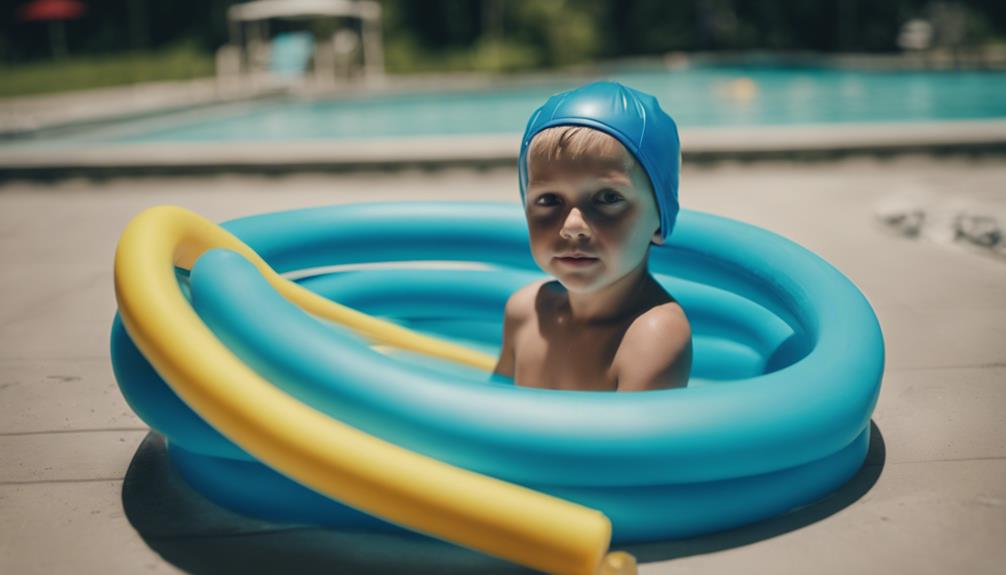
One crucial aspect of pool safety maintenance involves implementing strategies to prevent waterborne illnesses among swimmers. To guarantee a safe swimming environment, consider the following measures:
- Proper Pool Sanitization:
- Regularly test and maintain appropriate chlorine and pH levels in the pool water.
- Use pool shock treatments to eliminate bacteria and other contaminants.
- Invest in quality pool filtration systems to keep the water clean and clear.
- Promote Good Hygiene Practices:
- Encourage swimmers to shower before entering the pool to reduce bacteria introduction.
- Discourage individuals with stomach viruses from swimming to prevent water contamination.
- Implement routine bathroom breaks, especially for young children, to avoid accidents in the pool.
- Educate Swimmers on Water Safety:
- Teach swimmers about the risks of waterborne illnesses and how they can be prevented.
- Emphasize the importance of not swallowing pool water to minimize the risk of infections.
- Promote awareness of common symptoms of waterborne illnesses for early detection and treatment.
Frequently Asked Questions
Can Children Wear Goggles During Swim Lessons?
Children can wear goggles during swim lessons for enhanced comfort and visibility underwater. Goggles can enhance the learning experience by reducing water irritation and promoting confidence. However, make sure goggles fit properly to prevent leaks and distractions.
Is It Safe for Children to Swim With Ear Infections?
While the joy of swimming may beckon, caution must prevail when ear infections arise. Consult a healthcare professional to determine if swimming is safe, as water exposure can exacerbate symptoms and lead to complications.
What Should Parents Do if Their Child Is Afraid of Water?
Parents should address a child's fear of water by gradually introducing them to aquatic environments, using positive reinforcement, seeking professional guidance from swim instructors or therapists if needed, and ensuring a supportive and patient approach to help build confidence and overcome the fear.
Are There Specific Age Requirements for Life Vest Usage?
While flexibility exists, children under 13 years must wear life vests in pools for safety. This is essential to prevent accidents and guarantee water confidence. Supervision is paramount regardless of age; safety first!
How Often Should Pool Water Be Tested for Safety?
Pool water should be tested for safety at least twice a day. Regular testing guarantees proper chemical levels, pH balance, and water clarity. Maintaining a clean and safe pool environment is essential to prevent waterborne illnesses and guarantee swimmer health.
Conclusion
To sum up, it is crucial for caregivers to prioritize pool safety measures to guarantee the well-being of children. By including swim lessons, life vests, pool safety rules, fences, and preventative measures against waterborne illnesses, a culture of safety can be nurtured.
Remember, 'an ounce of prevention is worth a pound of cure' when it comes to safeguarding children around pools. Stay vigilant and proactive in creating a secure aquatic environment for your little ones.




